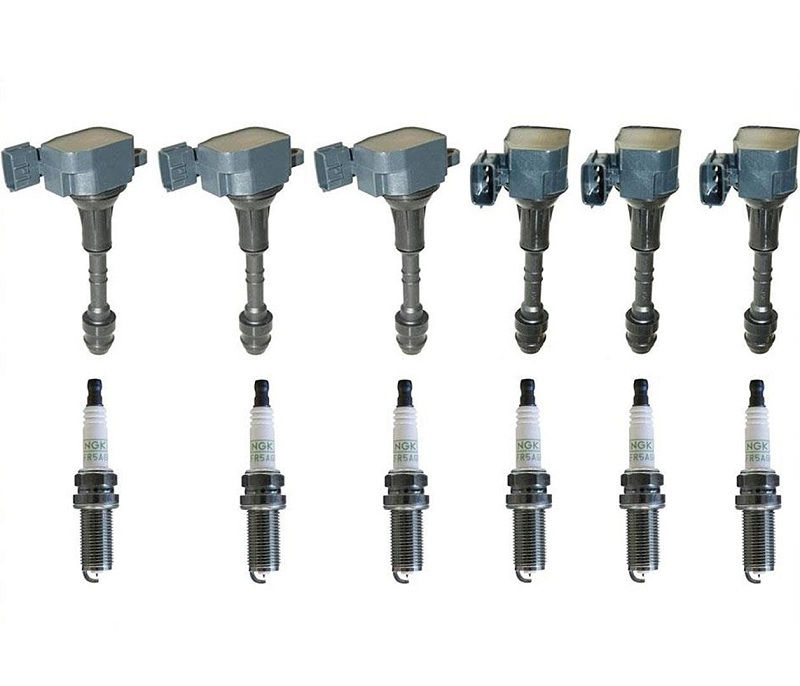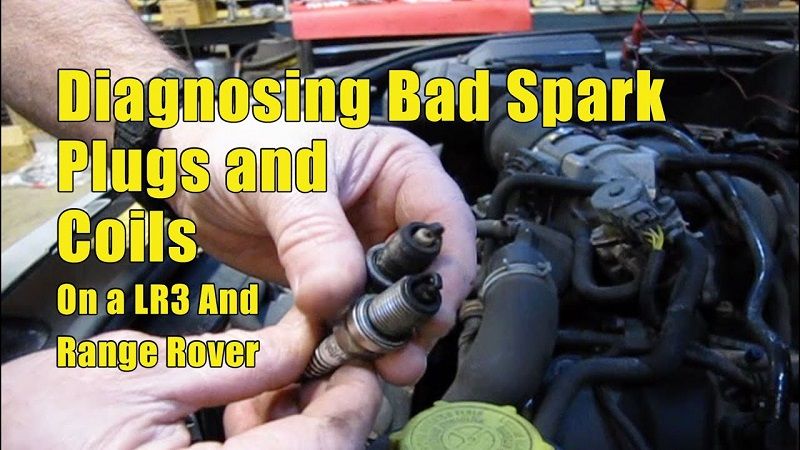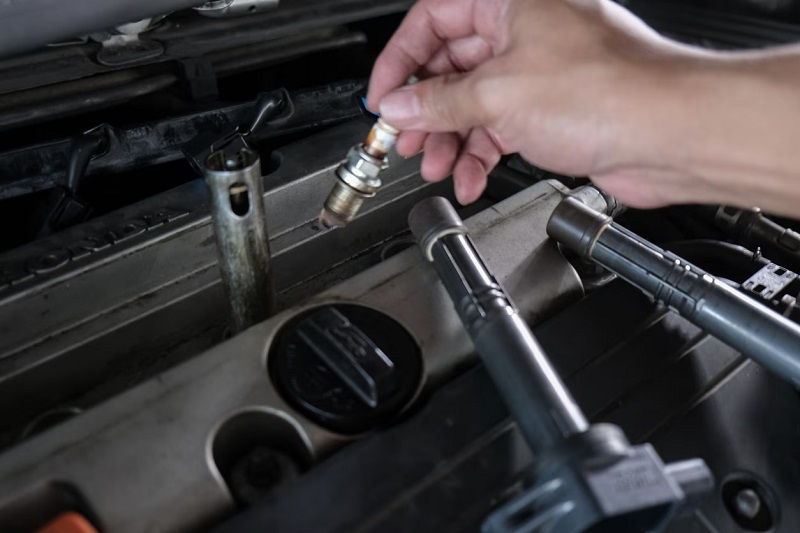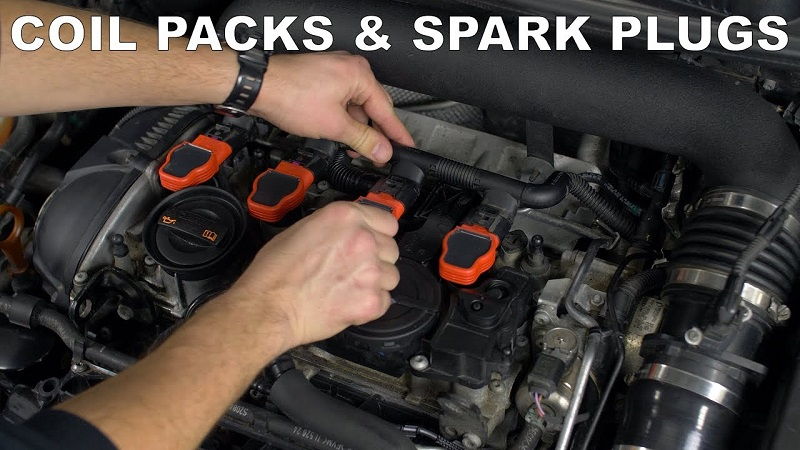This post contains affiliate links. This means I will make a commission at no extra cost to you should you click through and make a purchase [ “As an Amazon Associate, I earn from qualifying purchases.” ]. Read the full disclosure here.
Spark Plug and Coil Replacement Cost GuideMechanic.Com When it comes to maintaining your car’s engine performance, spark plugs and ignition coils play a crucial role.
Over time, these components may wear out and require replacement to ensure optimal combustion and prevent engine misfires.
However, understanding the cost involved in replacing spark plugs and coils can help you plan your budget accordingly.
In this comprehensive guide, we will delve into the factors that influence the cost of spark plug and coil replacement, provide you with an overview of the process, and offer some tips to help you save money on these essential maintenance tasks.
Understanding Spark Plugs and Coils
Functions and Importance

Spark plugs and ignition coils are vital components of your vehicle’s ignition system. The spark plugs create the electric spark necessary to ignite the air-fuel mixture in the combustion chamber, while the ignition coils amplify the electrical current that powers the spark plugs.
This combustion process is what propels your car forward and generates power. Without properly functioning spark plugs and coils, your engine may misfire, causing performance issues and reduced fuel efficiency.
Signs of Wear and Replacement
Recognizing the signs of worn-out spark plugs and faulty ignition coils is crucial in maintaining your vehicle’s performance. Common symptoms include rough idling, difficulty starting the engine, decreased acceleration, and poor fuel efficiency.
See Also: 2016 Honda Pilot Spark Plug Replacement
Additionally, you may experience engine misfires, a noticeable decrease in power, or even a check engine light illuminating on your dashboard. If you encounter any of these signs, it’s advisable to have your spark plugs and coils inspected by a professional mechanic.
Types of Spark Plugs and Coils
When it comes to spark plugs, there are several types available, including copper, platinum, and iridium. Copper spark plugs are the most affordable but have a shorter lifespan. Platinum and iridium spark plugs, on the other hand, offer better performance and durability but come at a higher cost.
Similarly, ignition coils can vary in terms of their construction materials and performance levels, with some designed for standard use and others for high-performance vehicles. Understanding the different options available can help you make an informed decision when replacing your spark plugs and coils.
Factors Affecting the Cost
Vehicle Make and Model
One of the primary factors influencing the cost of spark plug and coil replacement is the make and model of your vehicle. Some vehicles have more accessible ignition systems, making the replacement process quicker and easier, resulting in lower labor costs.
However, certain makes and models may have intricate engine designs that require more time and effort to access the spark plugs and coils, leading to higher labor charges.
Type and Quality of Components
The type and quality of spark plugs and coils you choose can significantly impact the overall cost of replacement. As mentioned earlier, different types of spark plugs, such as copper, platinum, and iridium, vary in price.
Opting for higher-quality components, although more expensive upfront, can often provide better performance and longevity, potentially saving you money in the long run.
It’s essential to consider your vehicle’s requirements and consult with a knowledgeable mechanic to determine the best options for your specific needs.
Brand and Supplier
The brand and supplier you choose for your spark plugs and coils can also influence the cost. Well-known brands with a reputation for quality may come at a higher price point, while lesser-known or generic brands may offer more affordable options.
Additionally, purchasing from a dealership or specialized auto parts store may be costlier than sourcing the components from an online retailer or local mechanic.
Comparing prices and considering the reputation and reliability of the brand and supplier can help you find a balance between affordability and quality.
Additional Repairs or Maintenance
During the spark plug and coil replacement process, your mechanic may identify other issues or maintenance needs that can impact the overall cost.
For example, if your ignition system has suffered from prolonged neglect, it may be necessary to clean or replace other related components, such as the ignition wires or distributor cap, to ensure optimal performance.
See Also: Honda Odyssey Spark Plug Replacement
Additionally, if your vehicle has a complex engine layout or requires specialized tools for access, these factors may increase the labor charges.
Average Cost of Spark Plug and Coil Replacement
Estimated Cost Range
The cost of spark plug and coil replacement can vary depending on the factors mentioned earlier. On average, you can expect to pay between $150 and $400 for this service, including parts and labor.
However, it’s important to note that this is just an estimate, and the actual cost can differ based on your location, the specific make and model of your vehicle, the type of components you choose, and the rates charged by your chosen mechanic.
Regional Price Variations
Prices for spark plug and coil replacement can vary across different regions. Urban areas or regions with a higher cost of living may have higher labor rates, which can impact the overall cost.
Additionally, availability and pricing of parts can differ, especially for less common vehicle models or brands. It’s advisable to research local prices and obtain quotes from multiple mechanics to ensure you have an accurate idea of the cost in your specific area.
Additional Expenses
While the primary cost of spark plug and coil replacement includes the parts and labor, there may be additional expenses to consider. For example, your mechanic may recommend replacing other related components, such as the ignition wires or distributor cap, which can increase the overall cost.
Additionally, if your vehicle requires specialized tools or diagnostic equipment for the replacement process, there may be additional fees associated with their use. It’s important to discuss these potential expenses with your mechanic beforehand to avoid any surprises when it comes time to pay the bill.
DIY vs. Professional Replacement
DIY Replacement
Many car owners consider tackling spark plug and coil replacement as a do-it-yourself (DIY) project to save money on labor costs. While it’s technically possible to replace these components yourself, it’s important to assess your skills and comfort level with automotive repairs.
DIY replacement requires some mechanical knowledge, the right tools, and the ability to access the components in your vehicle.
It’s crucial to follow the manufacturer’s guidelines and take necessary safety precautions to avoid damaging your engine or risking personal injury. However, DIY replacement can save you money on labor charges and provide a sense of accomplishment.
Professional Replacement
Seeking professional help for spark plug and coil replacement is often the preferred choice for those who lack the necessary skills, tools, or confidence to tackle the task themselves.
Professional mechanics have the expertise and experience to efficiently replace spark plugs and coils, ensuring the job is done correctly.
Additionally, professional replacement may be necessary if your vehicle is under warranty, as DIY repairs could potentially void the warranty coverage. While professional labor charges can increase the overall cost, it provides peace of mind knowing the job is in capable hands.
Impact on Warranty Coverage
If your vehicle is still covered by a warranty, it’s important to consider the impact of DIY spark plug and coil replacement on that coverage. Some warranties require maintenance and repairs to be performed by authorized dealerships or certified mechanics to remain valid.
If you attempt a DIY replacement and encounter any issues, it could potentially void your warranty or limit your coverage for future repairs. It’s crucial to review your warranty terms and consult with the manufacturer or dealership before deciding on a DIY or professional approach.
Tips to Reduce Cost
Shop Around for Competitive Prices
When it comes to spark plug and coil replacement, it’s wise to obtain quotes from multiple mechanics to compare prices. Different shops may have varying labor rates and parts pricing, so shopping around allows you to find the most competitive option.
However, it’s important to consider the reputation and expertise of the mechanics or shops you are considering, as quality workmanship is crucial for a successful replacement.
Consider Aftermarket Options
While OEM (Original Equipment Manufacturer) spark plugs and coils are often recommended for optimal performance and compatibility, aftermarket options can provide cost savings.
Aftermarket components are typically manufactured by third-party companies and may offer similar quality and performance at a lower price point.
See Also: Briggs and Stratton Spark Plug Replacement
Before opting for aftermarket options, it’s essential to research and select reputable brands known for producing reliable and compatible parts.
Take Advantage of Discounts
Many mechanics or auto parts stores offer discounts or promotions that can help reduce the cost of spark plug and coil replacement.
Keep an eye out for special deals, coupons, or loyalty programs that can provide savings. Additionally, some mechanics may offer discounted rates for bundled services or if you bring your own parts. Don’t hesitate to ask about any available discounts to help lower the overall cost.
Consider Alternative Options
If you’re on a tight budget, you may explore alternative options for spark plug and coil replacement. For example, some vocational schools or community colleges offer automotive programs where students, under the supervision of experienced instructors, perform repairs at a reduced cost.
While this may take longer than a professional mechanic, it can provide significant savings without compromising quality. However, it’s important to research the program and ensure it has a good reputation and proper supervision.
Frequently Asked Questions
Frequently Asked Questions
1. How often should spark plugs and ignition coils be replaced?
The lifespan of spark plugs and ignition coils can vary depending on several factors, including the type of components, your driving habits, and the condition of your engine.
In general, spark plugs should be replaced every 30,000 to 100,000 miles, while ignition coils may last around 100,000 miles.
However, it’s important to consult your vehicle’s owner manual or a trusted mechanic for specific recommendations based on your vehicle’s make and model.
2. Can I mix different types of spark plugs?
It is not recommended to mix different types of spark plugs within the same engine. Each type of spark plug has specific characteristics and heat ranges designed to work optimally with the engine’s requirements.
Mixing different types can cause uneven combustion, reduced performance, and potential damage to the engine. It’s best to stick to the recommended type specified by the vehicle manufacturer or consult with a knowledgeable mechanic.
3. Are there any warning signs that indicate the need for spark plug and coil replacement?
Yes, there are several warning signs that may indicate the need for spark plug and coil replacement. These include rough idling, difficulty starting the engine, decreased acceleration, poor fuel efficiency, engine misfires, a noticeable decrease in power, or a check engine light illuminating on the dashboard.
If you experience any of these symptoms, it’s advisable to have your vehicle inspected by a professional mechanic to determine the cause and take appropriate action.
4. Can I replace only one spark plug or coil?
While it may be tempting to replace only the faulty spark plug or coil, it’s generally recommended to replace all of them at once.
The reason behind this is that if one component is showing signs of wear or failure, the others may not be far behind.
Replacing all the spark plugs and coils together ensures even performance, optimal combustion, and reduces the risk of future issues. It’s a proactive approach that can save you time and potential expenses in the long run.
5. How can I prolong the lifespan of my spark plugs and coils?
There are several measures you can take to extend the lifespan of your spark plugs and coils. Regular maintenance, such as changing the engine oil and filters according to the recommended schedule, can help keep the engine clean and reduce the risk of debris buildup on the spark plugs.
See Also: Spark Plug Tube Seal Replacement
Additionally, avoiding aggressive driving habits, such as rapid acceleration and frequent high-speed driving, can reduce the strain on the ignition system.
Lastly, using high-quality fuel and avoiding prolonged idling can also contribute to the longevity of your spark plugs and coils.
Maintenance Tips for Longevity
1. Regularly inspect and clean your spark plugs:
Periodically checking the condition of your spark plugs can help identify any signs of wear or fouling. If necessary, clean them using a wire brush or replace them as recommended by your vehicle’s manufacturer.
2. Keep the ignition system clean:
Regularly inspect and clean the ignition coils, ignition wires, and distributor cap if your vehicle is equipped with one. This helps prevent debris buildup and ensures a strong electrical connection.
3. Follow the recommended maintenance schedule:
Adhere to the maintenance schedule outlined in your vehicle’s owner manual. This includes regular tune-ups, oil changes, and filter replacements, which can contribute to the overall health of your engine and ignition system.
4. Use high-quality fuel:
Using fuel with the recommended octane level can help prevent carbon deposits from accumulating on the spark plugs. High-quality fuel also promotes clean combustion and reduces the risk of misfires.
5. Avoid aggressive driving habits:
Aggressive driving, such as rapid acceleration and frequent high-speed driving, can put additional strain on the ignition system. By driving responsibly and avoiding excessive engine stress, you can help prolong the lifespan of your spark plugs and coils.
Finding a Reliable Mechanic
1. Ask for recommendations:
Seek recommendations from friends, family, or colleagues who have had positive experiences with mechanics in your area. Their firsthand experiences can provide valuable insights into the reputation and reliability of different mechanics.
2. Research online reviews:
Check online review platforms and websites dedicated to automotive services to gain an understanding of the experiences other customers have had with local mechanics. Look for mechanics with consistently positive reviews and a good reputation for quality workmanship.
3. Inquire about certifications and credentials:
Ask potential mechanics about their certifications and credentials. Look for ASE (Automotive Service Excellence) certifications, which demonstrate a mechanic’s expertise and commitment to professionalism.
Additionally, inquire about any specialized training or experience they may have with spark plug and coil replacement.
4. Request written estimates:
Before committing to a particular mechanic, request a written estimate for the spark plug and coil replacement.
This allows you to compare prices and ensure transparency in terms of the services included and the associated costs. Be wary of mechanics who provide vague or unclear estimates.
5. Trust your instincts:
When interacting with mechanics, trust your instincts. Pay attention to their communication skills, willingness to answer your questions, and overall professionalism. A trustworthy mechanic should make you feel comfortable and confident in their abilities to handle your vehicle’s maintenance needs.
The Importance of Regular Maintenance
1. Prevent costly repairs:
Regular maintenance, including spark plug and coil replacement, can help identify and address potential issues before they escalate into more significant and costly repairs.
See Also: Toyota Sienna Spark Plug Replacement
By staying proactive, you can save money in the long run by avoiding major breakdowns or damage to other engine components.
2. Ensure optimal performance:
Well-maintained spark plugs and coils contribute to optimal engine performance. By replacing these components as recommended and following the manufacturer’s maintenance guidelines, you can enjoy smoother acceleration, improved fuel efficiency, and overall better driving experience.
3. Extend the lifespan of your vehicle:
Regular maintenance helps extend the lifespan of your vehicle. By taking care of spark plugs and coils, along with other essential components, you can ensure your car runs reliably for a more extended period, potentially saving you money on the purchase of a new vehicle.
4. Maintain warranty coverage:
Some vehicle warranties require regular maintenance to remain valid. By following the recommended maintenance schedule and keeping records of all services performed, you can ensure your warranty coverage remains intact, providing added peace of mind.
5. Promote safety:
A properly maintained ignition system contributes to safer driving conditions. Engine misfires or sudden power loss can be dangerous, especially in critical situations. Regular spark plug and coil replacement help reduce the risk of such incidents, ensuring your vehicle operates safely.
Regular maintenance is essential to ensure the longevity, performance, and safety of your vehicle. By prioritizing spark plug and coil replacement, following recommended maintenance schedules, and addressing any issues promptly, you can enjoy a reliable and efficient driving experience while minimizing the risk of unexpected breakdowns and costly repairs.
Related video of The Cost of Spark Plug and Coil Replacement: A Comprehensive Guide
- P007F 62 Code Range Rover - June 10, 2024
- P007F Ford Focus: Causes, Diagnosis, and Solutions - June 5, 2024
- P0080 Ford: Causes, Diagnosis, and Solutions - May 31, 2024



